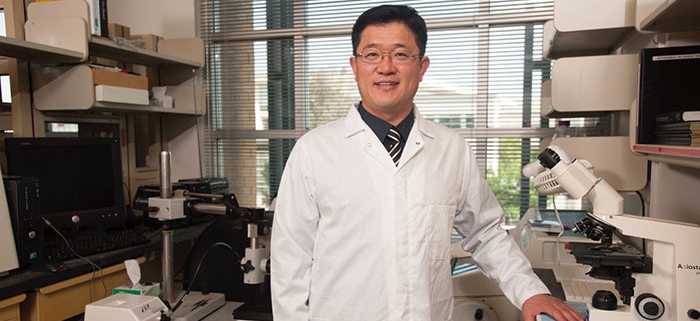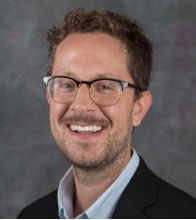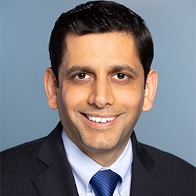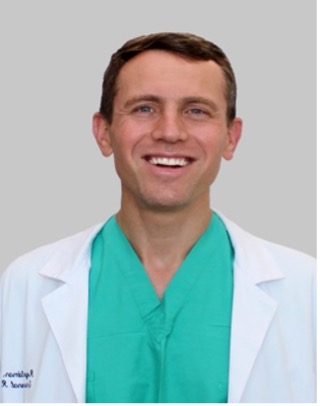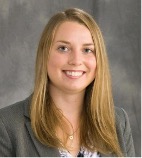UC Davis Innovators Awarded Proof-of-Concept Grants to Advance Potential Solutions in Human Health
By Neelanjana Gautam
The University of California, Davis, is awarding over $480,000 to help scientists advance compelling research and innovations toward commercial applications through the Science Translation and Innovative Research (STAIR™) proof-of-concept grant program. The program plays an important role in helping campus innovators bridge the early-stage hurdle of access to funding during one of the most challenging phases in new technology development.
“Funding from the STAIR grant program continues to play a critical role in helping our innovative faculty members advance promising new technologies along a path towards societal impact,” said Simon Atkinson, vice chancellor for research. “I would like to congratulate each of the award recipients and look forward to seeing the impact of their work.”
This year, in partnership with UC Davis Health Ventures, the STAIR program is focusing on the theme of Tomorrow’s Health Care Today, funding interdisciplinary innovations to address opportunities in human health.
Venture Catalyst, a unit within the Office of Innovation and Economic Development, manages the STAIR proof-of-concept grant program in close coordination with the UC Davis Office of Research, including collaboration with the Technology Transfer Office. As of 2022-23, over $3.4 million has been awarded to UC Davis faculty through Venture Catalyst proof-of- concept programs, with $179 million in follow on funding, resulting in 29 intellectual property agreements and 21 startups.
“I am delighted to see the STAIR program once again adding such a strong cohort of ideas to its already impressive history. We look forward to working with all the researchers involved and supporting them through the next phase of development,” said George Baxter, chief innovation and economic development officer.
“Collaboration is key to harnessing the full potential of UC Davis and UC Davis Health in tackling major health care challenges, such as affordable new therapies in cell and gene therapy,” said Don Taylor, chief ventures officer for UC Davis Health Ventures. “By intentionally integrating diverse UC Davis disciplines — medicine, engineering, veterinary medicine, and agricultural science — these projects will drive innovative solutions in human health.”
Following best practices used by federal agencies such as the National Science Foundation’s Small Business Innovative Research (SBIR) grants, Venture Catalyst staff assembled external review committees consisting of industry professionals, investors and experienced entrepreneurs, who reviewed the proposals, recommended the recipients of the STAIR awards, and offered feedback to all applicants.
Recipients of the 2023-24 STAIR grant
Early detection of cancer biomarkers in liquid biopsies
Randy Carney Associate Professor, Department of Biomedical Engineering
Carney’s project will address a critical gap in the surveillance of cancer recurrence by developing a cost-effective, automated Raman spectroscopy (RS) liquid biopsy assay augmented with machine learning (ML). This innovative approach quickly detects cancer-related extracellular vesicles, capitalizing on RS’s ability to identify early biochemical signs of disease. The goal is to boost patient outcomes and health economics through timely intervention. This one-year project will integrate novel mass spectrometry imaging omics into analysis of banked liquid biopsy specimens from head and neck cancer patients. The data resulting from this project will greatly enhance the interpretation of the RS assay.
Enhancing the therapeutic potential for inflammatory bowel diseases
Maneesh Dave Associate Professor, Gastroenterology and Hepatology
Inflammatory bowel disease (IBD), including ulcerative colitis and Crohn’s disease, affects nearly 3 million people in North America, with its prevalence increasing globally. Dave’s team will be developing an approach to deliver Mesenchymal Stem Cell Therapy (MSC) to the intestine. The goal is to improve the cells’ survivability and ensure precise delivery to inflammation sites. The grant will allow the team to develop an optimal approach to deliver MSCs for the treatment of IBD while preserving and potentially enhancing their immunosuppressive and tissue regenerative potential.
Optimizing a single-use, hand-held device for gastrostomy tube removal
Roger Goldman Assistant Professor, Department of Radiology
Removal of bulb-retained gastrostomy tubes is associated with unnecessary pain, complications, and cost. Currently, there’s no safe and efficient method of tube removal. Goldman and team have designed a patent-pending, single-use, hand-held device that directly addresses the limitations of the current clinical practice by safely incising the tube in-situ for removal without pain or injury. With the funding from the STAIR grant, the team proposes to significantly advance the concept toward clinical use through pre-clinical design iteration, large animal model testing, and contract manufacturing development.
Restoring speech communication with an assistive device platform
Lee Miller Professor, Neurobiology, Physiology and Behavior; Otolaryngology — Head and Neck Surgery; Center for Mind and Brain; Center for Neuroengineering and Medicine
Miller’s team will develop an assistive device platform that enables fluent, own-voice speech production in individuals who have lost the ability due to disease or injury. To accomplish this, the team will use a novel engineering approach that combines low-density muscle recordings with video of the face. The speaker need only move their mouth silently as if they are speaking. A neural network then learns the custom, individualized mapping from muscle recordings and video to speech output and will synthesize intelligible speech in the talker’s own voice. This project promises to radically improve social integration, work productivity, and quality-of-life for patients.
Developing a technology platform to explore fundamental biology
Elizabeth Neumann Assistant Professor, Department of Chemistry
Biology is spatial as cells interact with one another and form communities. While critical for understanding human health and disease, most of our fundamental knowledge of biology removes the spatial component, because spatial biology is expensive and time consuming. Indeed, to date, these limitations prevent it from being scaled for clinical applications. Neumann and graduate student Kyle Vanderschoot describe a spatial biology platform that is quick and easy, while still covering the major chemical classes biological systems use: metabolites, proteins, and transcripts. These qualities will allow it to be adopted by many sectors, including academics, pharma, and health care for practically any disease. The award helps the researchers test at larger scales, acquire data for strengthening the surrounding intellectual property, and apply the technology to several key market areas, including aging, cancer and diagnostics.
Combating the neurotoxicity of alpha-synuclein aggregates in Parkinson’s disease

John Voss Professor, Department of Biochemistry & Molecular Medicine
Parkinson’s disease is the most common movement disorder characterized by the degeneration of nerve cells. Voss and his team have developed an innovative small molecule library (PALs) to counter the self-amplifying cycle driving Parkinson’s disease (PD). Invitro screening of their library has identified a PAL compound that modulates the toxic oligomeric conformation formed by misfolded α-Synuclein protein, while also exerting a potent antioxidant activity. The main goal is to validate neuroprotection in dopaminergic neurons insulted with exogenous Synuclein protein. Secondly, the team will test the ability of PAL compound to attenuate Synuclein protein-induced neuroinflammation in the mouse olfactory bulb. And finally, the team will execute a mouse pharmacokinetics study to determine the dosing regimen in an animal model for PD.
Off-the-shelf stem cell-derived regenerative treatment for cerebral palsy
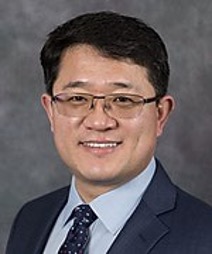
Aijun Wang Professor, Department of Surgery, Department of Biomedical Engineering
Cerebral palsy (CP) is a group of neurological disorders that appears in infancy or early childhood, is as common as adult stroke, and permanently affects body movement and muscle coordination. The disease disproportionately impacts underserved communities in California as well as globally, with African American neonates having a 60% greater likelihood of developing the condition, while 95% of the CP burden resides in low- and middle-income countries. Based on extensive scientific evidence that stem cells and their derived extracellular vesicles demonstrate efficient delivery of neuroprotective cargo to regions of injury in the central nervous system, Wang and team will use the grant to perform pre-Investigational New Drug (IND) studies designed to identify the minimal effective dose and administration route for subsequent IND-enabling studies and future clinical trials. The work holds significant potential for improving neurological outcomes and for preventing and treating CP once established.
Media Contact
AJ Cheline, UC Davis Office of Research, 530-752-1101, [email protected]
Neelanjana Gautam, UC Davis Office of Research, [email protected]
Feature image caption: Dr. Aijun Wang stands in the research laboratory at UC Davis Medical Center in Sacramento, CA. Wang and team will use the STAIR grant to develop stem cell-derived regenerative treatment for cerebral palsy. (Gregory Urquiaga/ UC Davis).

